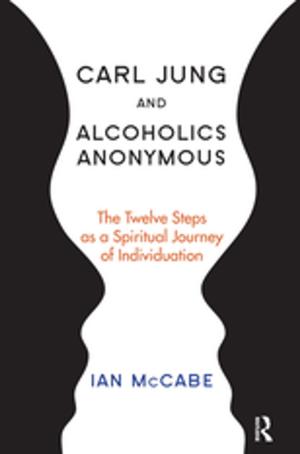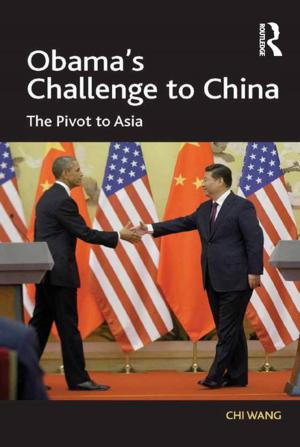Political Survival and Yasukuni in Japan's Relations with China
Nonfiction, History, Asian, Japan, Social & Cultural Studies, Political Science, International, International Relations, Social Science| Author: | Mong Cheung | ISBN: | 9781317369486 |
| Publisher: | Taylor and Francis | Publication: | June 17, 2016 |
| Imprint: | Routledge | Language: | English |
| Author: | Mong Cheung |
| ISBN: | 9781317369486 |
| Publisher: | Taylor and Francis |
| Publication: | June 17, 2016 |
| Imprint: | Routledge |
| Language: | English |
What role does the political survival of prime ministers play in Japan’s relations with China over the Yasukuni issue? Three Japanese prime ministers, including Nakasone Yasuhiro, Hashimoto Ryutaro and Abe Shinzo, complied with China’s demands and stopped visiting the controversial Shrine in 1986, 1997 and 2007, respectively. By contrast, the Yasukuni controversy intensified between 2001 and 2006 when a popular Prime Minister Koizumi Junichiro was determined to pay regular homage to the Yasukuni Shrine annually. Prime Minister Abe, who previously demonstrated restraint over the issue in his first term between 2006 and 2007, visited the Yasukuni unexpectedly in 2013 but not in 2014 or 2015. To explain this variation, this book presents an alternative interpretation of Japan’s official responses toward China’s pressure over the Yasukuni issue between 1985 and 2015 by applying a political survival approach that highlights the domestic political legitimacy of the Japanese prime minister or the ruling party.
This book will be of great interest to students and researchers of Sino-Japanese relations, Japan’s foreign policy and international relations.
What role does the political survival of prime ministers play in Japan’s relations with China over the Yasukuni issue? Three Japanese prime ministers, including Nakasone Yasuhiro, Hashimoto Ryutaro and Abe Shinzo, complied with China’s demands and stopped visiting the controversial Shrine in 1986, 1997 and 2007, respectively. By contrast, the Yasukuni controversy intensified between 2001 and 2006 when a popular Prime Minister Koizumi Junichiro was determined to pay regular homage to the Yasukuni Shrine annually. Prime Minister Abe, who previously demonstrated restraint over the issue in his first term between 2006 and 2007, visited the Yasukuni unexpectedly in 2013 but not in 2014 or 2015. To explain this variation, this book presents an alternative interpretation of Japan’s official responses toward China’s pressure over the Yasukuni issue between 1985 and 2015 by applying a political survival approach that highlights the domestic political legitimacy of the Japanese prime minister or the ruling party.
This book will be of great interest to students and researchers of Sino-Japanese relations, Japan’s foreign policy and international relations.















